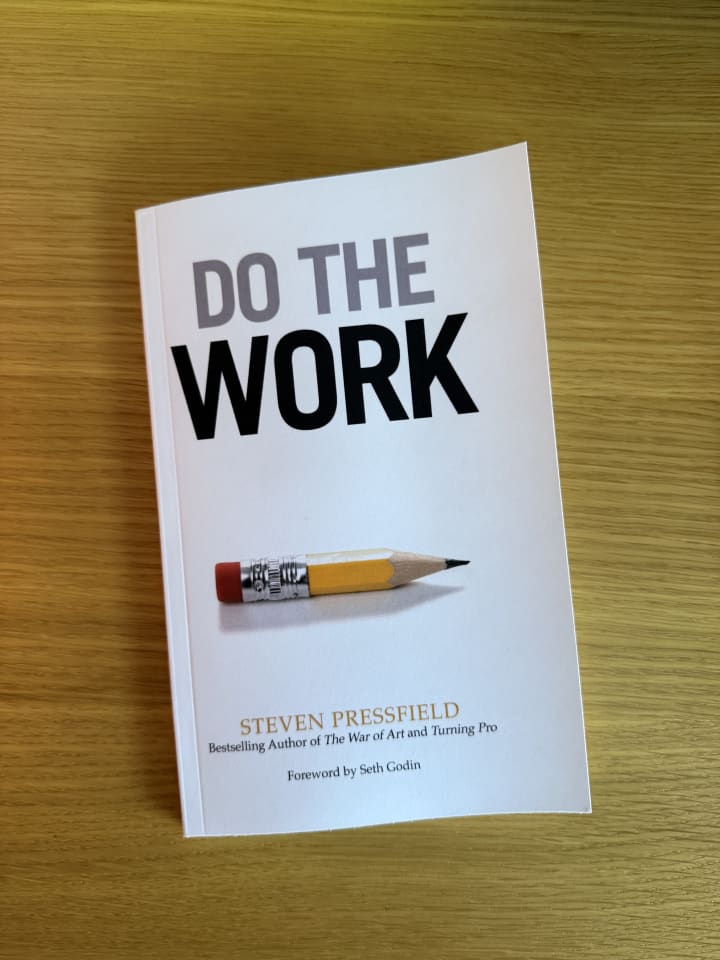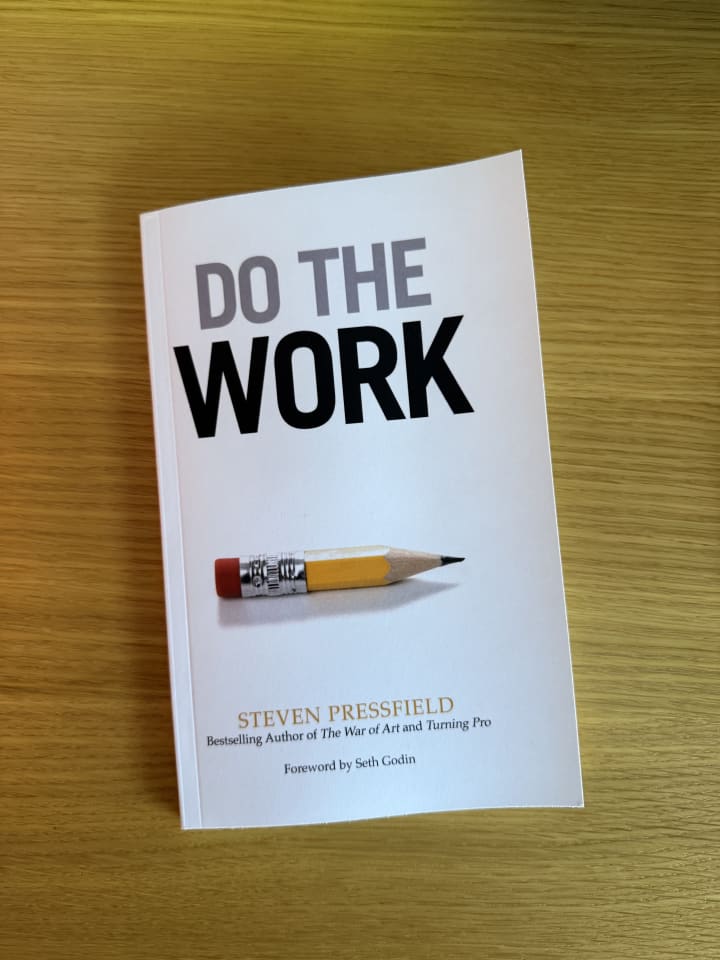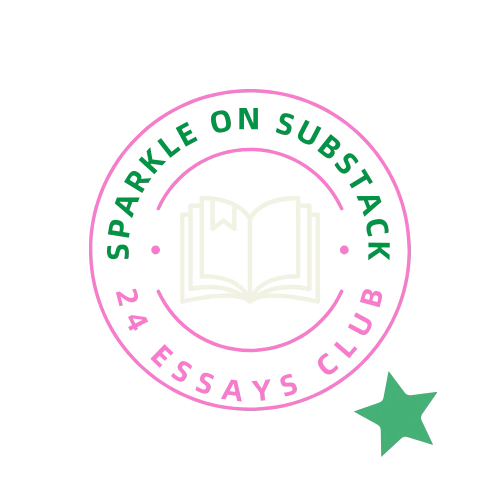The myth of the five-year plan (and what happens when you abandon it)
How changing your definition of success can lead to better outcomes.
There's something particularly gutting about looking at your younger self's career vision board from 5+ years ago and realising that none of this matters anymore. Not because you failed but because you've changed so fundamentally that success looks completely different now.
If you’re not fussed about visual stuff, for you it might be a spreadsheet you made five years ago. You know the one—maybe it's still buried in your Google Drive, a meticulous plan mapping out your next decade of promotions, salary benchmarks, and professional milestones. The one that made you feel in control, like you were following the plan, the one that would lead to that carefully curated vision of success.
How's that working out for you?
If you're reading this, I'm guessing not great. Not because you've failed—though it might feel that way—but because you're finally asking yourself what researcher Anthony Klotz identified when he coined the term "The Great Resignation": What if the benchmarks we've been chasing were never really ours to begin with?12


Ten years ago, I invested time and money into coaching certification, convinced that someday in the future, it would become my escape route from management. (It turned out that it worked as a very useful skill in developing others and for them to have access to a trained coach for zero fees.)
Now (since the burnout, I might add), that dream feels invalid—not because coaching isn't valuable but because it answered a question I'm no longer asking.
Since the burnout, my idea of my career and my future has changed a lot… to... whatever this is... it feels like, at some point, I’ve stepped through a wrong door that led me to completely wrong building.
The 2010s were dominated by the idea that success meant constant acceleration, that anything less than relentless forward momentum was somehow a personal failure. That is not only my personal experience; the relentless forward momentum dominated most of us.
But here's what psychologist Herminia Ibarra discovered in her research on career transitions: our professional identities aren't static monuments to be preserved but rather ongoing experiments in becoming. In her book "Working Identity," she writes about how our careers can—and should—evolve alongside our sense of self.
The real failure, it turns out, isn't in abandoning the plan; it's in clutching to it so tightly that we strangle our own growth.
When I decided to write on Substack, it felt simultaneously like giving up and breaking free.
It felt a lot like starting over—again.
I am realising now that the plans don’t need to be fully abandoned, and all the skills gained are not in vain. The plans made and the gained experience and skills just need recalibration.
What if real growth isn't in executing the plan but in learning to pivot when it no longer serves you?
Here's what I know now: Work ethic isn't my problem. Neither is discipline, or "putting in the hours". What's shifted is my definition of success itself – from something that looked good to others and on my CV to something that feels worth pursuing and worth time and energy.
Here's the thing: it's not just about the writing. It's about reclaiming the parts of your work that actually meant something, sorting through the experience and skills that are still valid, and repurposing them.
Remember those coaching skills I mentioned? They're not gathering dust—they're being repurposed, finding new life in essays that reach far more people than my one-on-one sessions ever could. Ibarra calls this "experimenting" with different aspects of your professional identity.
Starting next month, I'll be diving deeper into this transition: the psychological toll of letting go, the liberation of rebuilding, and, yes, the very real challenges of turning corporate skills into creative work. Not because I have all the answers, but because sharing it feels right.
And yes, I'm putting this behind a paywall. I wanted to keep this publication free forever, yet recently, I turned on paid (and I did it quietly).
Last week, I had my first paid subscriber, so I can call myself a “professional writer.” There are no words I can use to describe my gratitude, and I will forever be grateful for making that switch for me. THANK YOU.
With that said, I want to provide something extra for my paid supporter, so once a month, one post will be behind the paywall.
Sometimes, charging for your work isn't about the money—it's about honouring the value of your evolution.
In conclusion, in last week's post, I encouraged you to think about achieving your big, juicy goals and that doing so is not an accident. It requires work, plans, strategy, energy, a lot of persistence, and caffeine. Yet these plans can lead us to stray onto different routes from which we have no maps or GPS to return.
If that happens, here’s the thought to ponder on:
The plans we make aren't useless – they're stepping stones that get us closer to understanding what we actually want, even if that understanding comes through realising what we don't want anymore.
Daniel Kahneman talks about how terrible we are at predicting what will make our future selves happy. Maybe that's because we're too busy following someone else's blueprint for happiness.3 So here's to letting that old vision of success die—not with a bang or even a whimper, but with the quiet certainty that comes from finally choosing your own path.
Even if it means deleting that spreadsheet or vision board.
PS: This is post #14 as I work toward writing 24 essays for the Sparkle on Substack Essay Club!
If you're like me and find it hard to stick to a writing routine because, well, life happens, check out
's Sparkle on Substack Essay Club. It's been just what I needed to keep writing regularly.




There are so many truths in this Jana that are so important! It reminds me of that old saying, "We make plans, and god laughs."
I think regular reflection & checking in with how your values have changed is part of being human -- but not something talked about or valued in our culture. Thanks for writing this:)
I was never good at the 5 year plan because I’ve always felt quite directionless, I think because work I’ve not had a career, just jobs. And yes it’s always changing & evolving - I like what you say about clutching to something which then stops you from doing anything else - it’s so true. Thank Jana